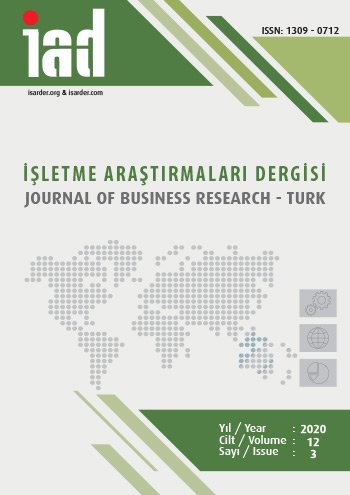(Impact of Paternalistic Leadership on Service Innovation Behavior and the Mediating Role of Job Satisfaction with Testing of Structural Equation Modeling)
Keywords:
Paternalistic Leadership, Job Satisfaction, Service Innovation BehaviorAbstract
Purpose – The aim of this study is to determine the effect of paternalistic leadership, which is a current subject in leadership approaches, on service innovation behavior and to test the mediating role of job satisfaction with structural equation modeling. Design/methodology/approach – In the study, a questionnaire form consisting of four parts, namely Paternalistic Leadership Scale, Service Innovation Behavior Scale, Job Satisfaction Scale, and questions to determine demographic and individual characteristics were used as data collection tool. The research was conducted on 348 healthcare professionals working in a public hospital. The effect of paternalistic leadership on service innovation behavior and the mediating role of job satisfaction was tested by structural equation modeling. Findings – There is a statistically significant, positive and moderate (r: 632) relationship between paternalistic leadership and service innovation behavior (p <0.01). Paternalistic leadership has a direct effect of 0.25 units on service innovation behavior, an indirect effect of 0.54 units with the mediation of job satisfaction, and a total effect of 0.79 units. Discussion – As a result of the research, it has been observed that paternalistic leadership has a positive and significant effect on service innovation behavior and job satisfaction has a mediating role between paternalistic leadership and service innovation behavior. Accordingly, it can be said that the paternalistic approach of the managers to their subordinates, in other words, their paternalistic leadership will increase the job satisfaction level of the employees and increase their performance in the development and of new ideas and methods.
Downloads
Published
How to Cite
Issue
Section
License

This work is licensed under a Creative Commons Attribution-NoDerivatives 4.0 International License.





